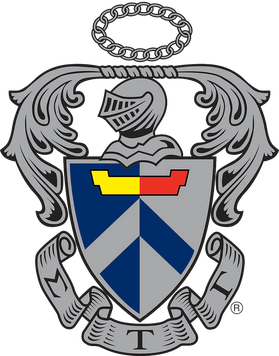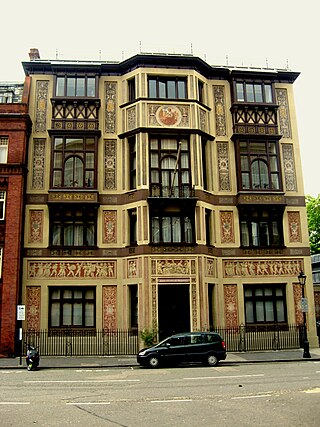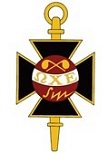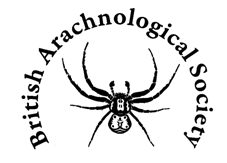Related Research Articles
Arthur Judson Brown was an American clergyman, missionary and author.

Sigma Tau Gamma (ΣΤΓ), commonly known as Sig Tau, is a United States college social fraternity founded on June 28, 1920, at the University of Central Missouri. The fraternity was founded as a result of friendships made while some of the founders fought in World War I in France.

The American Guild of Organists (AGO) is an international organization of academic, church, and concert organists in the US, headquartered in New York City with its administrative offices in the Interchurch Center. Founded as a professional educational association, it was chartered by the Board of Regents of the University of the State of New York in 1896, with the authority to grant certificates of associate or fellow to members who passed examinations.

The University Philosophical Society, commonly known as The Phil, is a student paper-reading and debating society in Trinity College, Dublin, Ireland. Founded in 1683 it is the oldest student, collegial and paper-reading society in the world.

The Royal College of Organists (RCO) is a charity and membership organisation based in the United Kingdom, with members worldwide. Its role is to promote and advance organ playing and choral music, and it offers music education, training and development, and professional support for organists and choral directors.

The Royal Entomological Society is devoted to the study of insects. Its aims are to disseminate information about insects and improving communication between entomologists.

Psi Chi (ΨΧ) is a college student honor society in psychology with international outreach founded in 1929 at the University of Kansas in the United States.

Omega Chi Epsilon is an American honor society for chemical engineering students.

Pi Gamma Mu or ΠΓΜ is the oldest and preeminent honor society in the social sciences. It is also the only interdisciplinary social science honor society. It serves the various social science disciplines which seek to understand and explain human behavior and social relationships as well as their concomitant problems and issues. Pi Gamma Mu's constitution defines the social sciences to include the disciplines of history, political science, sociology, anthropology, economics, psychology, international relations, criminal justice, social work, social philosophy, history of education, and human geography. Membership is also extended to interdisciplinary social science fields that build on the core social science disciplines, such as business administration, education, cultural and area studies, public administration, and organizational behavior.
The British Society of Cinematographers is an organisation formed in 1949 by Bert Easey, the then head of the Denham and Pinewood studio camera departments, to represent British cinematographers in the British film industry.

The Scotland Malawi Partnership (SMP) is a non-profit umbrella organisation which co-ordinates the activities of Scottish individuals and organisations with existing links to Malawi, and aims to foster further links between both countries. It is a charitable membership organisation, with over 1,100 members. It is independent of the Scottish Government and Scottish Parliament, although it works closely with both.
The People's Association for Catholic Germany was a German political party founded on 24 October 1890 by Mönchengladbach manufacturer Franz Brandt and Catholic theologian and member of the Reichstag Franz Hitze, with participation by politicians Ludwig Windthorst and Franz Graf von Ballestrem. Its origins lay in Cologne but the founders chose Mönchengladbach as its base. Their aim was to counter the Social Democratic Party by addressing social problems from a Catholic standpoint.

The Royal Microscopical Society (RMS) is a learned society for the promotion of microscopy. It was founded in 1839 as the Microscopical Society of London making it the oldest organisation of its kind in the world. In 1866, the society gained its royal charter and took its current name. Founded as a society of amateurs, its membership consists of individuals of all skill levels in numerous related fields from throughout the world. Every year since 1841, the society has published its own scientific journal, the Journal of Microscopy, which contains peer-reviewed papers and book reviews. The society is a registered charity that is dedicated to advancing science, developing careers and supporting wider understanding of science and microscopy through its Outreach activities.

The Plinian Society was a club at the University of Edinburgh for students interested in natural history. It was founded in 1823. Several of its members went on to have prominent careers, most notably Charles Darwin who announced his first scientific discoveries at the society.
The Military Order of the Dragon was an exclusive fraternal order founded in 1900 by members of the China Relief Expedition, a U.S. military force that participated in the Boxer Rebellion in Imperial China.
The Society of Professional Economists is a British network of professional economists. Its members are drawn from all areas of the discipline including financial and professional services, business, journalism, government, consultancy, business schools and universities. Membership is open to anyone who has a degree with substantial economic content and/or works in an area of economic endeavour or investigation.

The British Arachnological Society (BAS) is the UK’s first body devoted exclusively to the study of arachnids. The primary objectives of the Society are to encourage interest in arachnology in people of all ages and to generate, promote and disseminate arachnological knowledge and understanding by all suitable means. In particular, it works to foster co-operation between amateur and professional arachnologists.

The Theatre Organ Society International (TOSI) was a nonprofit organization, dedicated to promoting and presenting the theatre organ performance as an internationally recognized art form.
Marion Amelia Spence Ross FRSE was a Scottish physicist noted for her work in x-ray crystallography and fluid dynamics.
References
- ↑ ESO Web site: History Access date: 10 March 2022